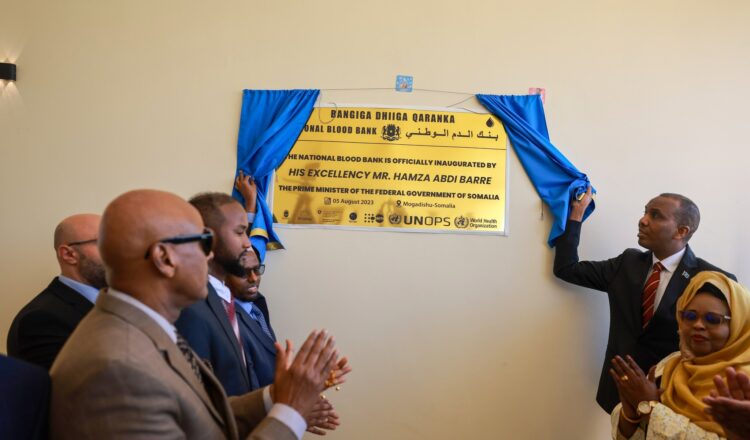Somalia has launched a fully operational blood bank in Mogadishu, marking a pivotal moment for the nation. The inauguration of this essential facility, the first of its kind in 30 years, was led by Somali Prime Minister Hamza Abdi Barre on Saturday. The restoration of the blood bank is set to significantly bolster the country’s ability to address medical emergencies and save lives.
The journey to reopening the blood bank was accomplished with valuable support from the United Nations reproductive health agency (UNFPA) and the Swedish government. The facility is an outcome of collaboration that underscores the significance of international partnerships in rebuilding vital infrastructure.
The original blood bank had been established in 1976, but like many other state institutions, it collapsed amidst the turmoil of the civil war in 1991. The void left by its closure was keenly felt as Somalia faced numerous challenges, including violent incidents and calamities that necessitated a steady supply of blood. The new blood bank’s formation is a testament to Somalia’s determination to reclaim its medical response capacity and elevate its healthcare sector.
Prime Minister Barre highlighted the blood bank’s significance, particularly in a country that often requires swift access to blood supplies due to various emergencies, including attacks by extremist groups such as Al-Shabaab. The newly inaugurated blood bank comes as a beacon of hope, equipping the nation to better manage emergencies and offer critical medical assistance.
The National Blood Bank, equipped with a daily production capacity of 50 units and a storage capacity of 6,500 units, is poised to balance supply and demand efficiently. This strategic approach ensures that medical practitioners have immediate access to safe blood products, thus minimizing avoidable fatalities.
The restored blood bank is a vital lifeline in various medical scenarios, including surgical operations, trauma cases, childbirth complications, and treating patients with chronic illnesses. The UNFPA stated that this facility has the potential to address healthcare challenges, including maternal mortality rates and accessibility to quality healthcare and emergency medical services.
Dr. Yasin Ahmed Nur, a former deputy director of Somalia’s previous blood bank, expressed his appreciation for the resurrection of the facility, emphasizing its pivotal role in transforming the country’s medical response capability. The improved transportation and communication infrastructure of the present day is set to facilitate the efficient distribution of blood to those in need.
Somalia’s State Minister of Health, Dr. Maryama Mohamed Hussein, seized the opportunity of the upcoming World Blood Donor Day on June 14 to raise awareness about blood donations. She underscored the importance of dispelling the taboo against blood donations and using the occasion to educate the public about the global celebration of World Blood Donor Day.
- Tags: Blood Bank, Health Care, Somalia, UNFPA





